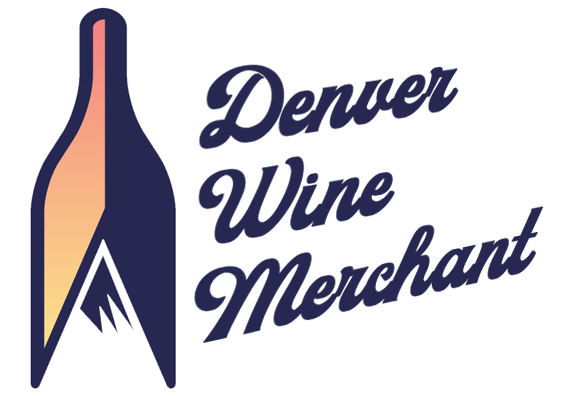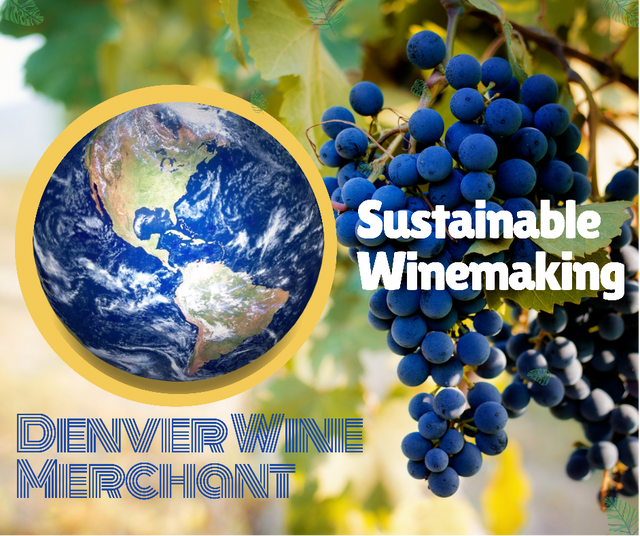Understanding and Buying Sustainable Wine
When it comes to wine, there are a lot of terms thrown around or listed on wine labels that are used vaguely or incorrectly. Understanding the truth behind these terms can alleviate some of the "term fatigue" that wine consumers can experience, and can also help you choose wines that are better quality - no formal wine education necessary!
Today, we'll tackle one of these typically vague terms: sustainable wine. More and more, you'll see bottles labeled as "sustainable" or "sustainably-made". In most wine producing countries around the world, there's no nation-wide or legally recognized definition of the term "sustainable". So, what does it mean when you see this term on a label? First off, let's start with another wine term as a juxtaposition - conventional wine.
While you typically won’t see the words "conventional" or “conventionally-made” used as descriptors on a wine label, this style of winemaking is behind most of the wines that you’ll find on the bottom shelves of your local wine shop. Massive companies that produce nearly-unfathomable volumes of wine each year that cost you as the consumer very little. You're likely to spend under $15 a bottle for these wines, and although you won't see ingredient labels on wine bottles here in the USA, you can expect that that wine will contain more than just fermented grapes. Often times, conventionally-made wines may include one or more chemical additives or stabilizers (Google “Velcorin”, aka Dimethyl Dicarbonate, if you want a real scare), dyes or colorants ("Mega Purple" is a good example), lower-quality grapes that are farmed using lots of pesticides, or wines produced with added sugar (to beef up the final alcohol percentage) and/or artificial flavors. These kinds of artificial interventions are cheap and easy for big producers to access, so conventional production is a go-to method for many lower-price wines.
Now, you can certainly find some sustainable wines at lower price points, and you’ll definitely still find a few conventionally-made wines at nearly all price points, but over about $15, the more you spend on a bottle, the less likely the wine is to be made conventionally. Why is that? The simple answer is an age-old dilemma for Capitalism - better ingredients and better production methods just cost more.
However, on to happier things - sustainable wines! A good, general starter definition of a sustainable wine is one that is made with "mitigation and reduction of wastefulness in winemaking"* in mind. It can go beyond that as well, though, to include organic or biodynamic production methods (whether officially certified or not). Basically, producers of sustainable wines aim to do what's best for the grapes and vineyard, best for the winery’s employees, and/or best for the consumer, within the realm of those decisions making decent economic sense, too.
Here are some examples of how some producers make their grape growing and wine production more sustainable:
- Limiting the irrigation of their grape vines, or not irrigating at all.
- Not using any pesticides, or maybe only using select pesticides in limited quantities, and only when absolutely necessary.
- Growing seasonal cover crops between vine rows (such as native grasses, wildflowers, or other plants that support pollinators and provide habitat for birds and other animals that eat vineyard pests) or not tilling the dirt between vine rows.
- Crafting wine with no added chemicals, preservatives, colorants, sugar, supplemental sulphur, or non-native yeasts.
- Ensuring fair pay and benefits to employees, from seasonal harvest workers to full-time cellar hands.
- Giving back to their community in the form of charitable donations or other material support to local non-profits, community-based organizations, schools, etc.
- Or, a winery might only sell their wines locally at the tasting room or winery itself, instead of engaging in resource-heavy national or international distribution.
Often, sustainable wines include a combination of multiple of the above practices (and there are countless other sustainable practices not included in this list). So many options! At the end of the day, producing wines in a sustainable way is a deliberate action on the part of the winery or wine maker, and one that usually results in them spending more money or taking the longer and harder route to make the wine versus if they’d decided to make it the conventional way. Thus, the price of a sustainable wine on the shelf will be higher, too.
Ultimately, in the same way that you "vote with your dollar" when you buy food, personal care products, clothing, etc., you also vote with your dollar when you purchase wine. If you want to enjoy better-quality wines, and if you support sustainability in other areas of your life and want to support and encourage it in the wine world, too, then take the next step and make a point to seek out sustainable wines. How can you tell if a producer or winery is crafting sustainable wines? Sometimes, you’ll spot a special label if the producer has pursued an official certification. You can also research producers to see how they talk about their winemaking methods on their website - if they don’t give any information or technical details, they’re likely using conventional methods. Asking your local wine shop for suggestions is a great place to start, too. Depending on how deep you’d like to go, you can request sustainably-made wines, organic wines, or biodynamic wines. A good somm will have numerous recommendations to give you among their selection, and oftentimes, their eyes will light up and you’ll get to hear some unique and cool stories about the producers, too!
A few sustainable wines we love in the shop:
-
Gut Oggau Theodora 2018
-
Bernard Vallette Quatre Saisons Beaujolais 2019
-
Lioco Mendocino County Pinot Noir 2019
Additional resources:
*Wine Folly and Vice have great articles on sustainability in wine (written in 2016 and 2015, respectively). The definition of sustainable wine that I included is quoted from the Wine Folly article.
Well + Good has another excellent article on this topic (2020).
A few certifications and labels to look for:
- Sustainable Winegrowing NZ - an O.G. organization for sustainable wine (specific to wines from New Zealand).
- Demeter USA - certification organization for biodynamic agriculture (beyond only wine!).
- LIVE Certified - “environmentally and socially responsible winegrowing” certification organization in the Pacific Northwest.
- USDA Organic - certification for organic growing practices through the U.S. federal government.
- ECOCERT - certification for organic growing practices through the European Union.
- California Sustainable Winegrowing Alliance


0 Comments
There are no comments for this article. Be the first one to leave a message!